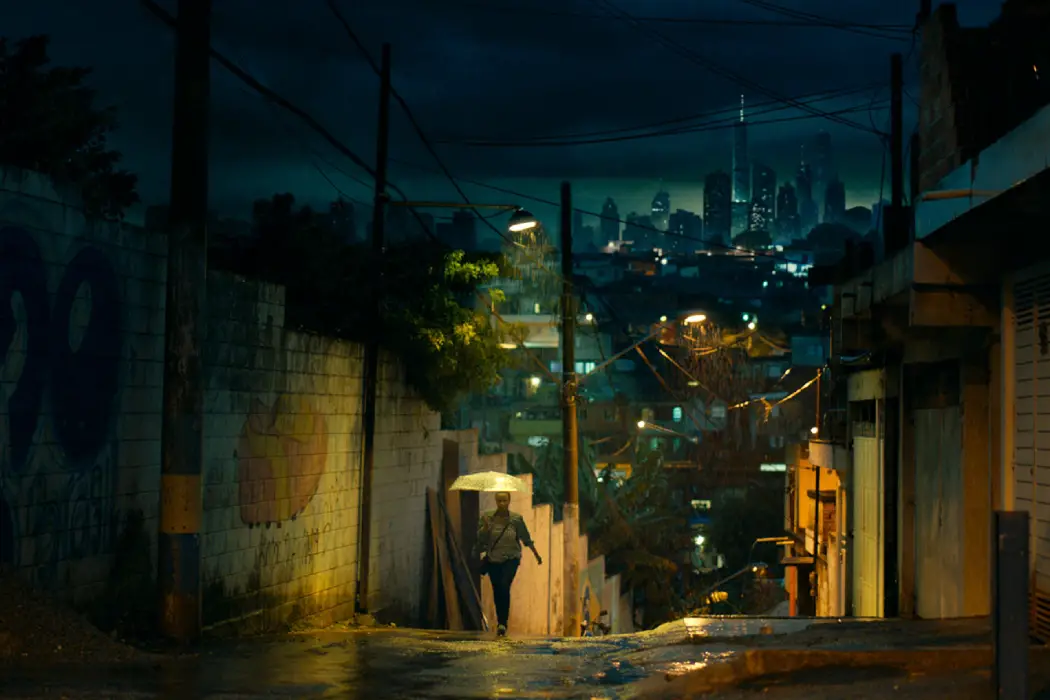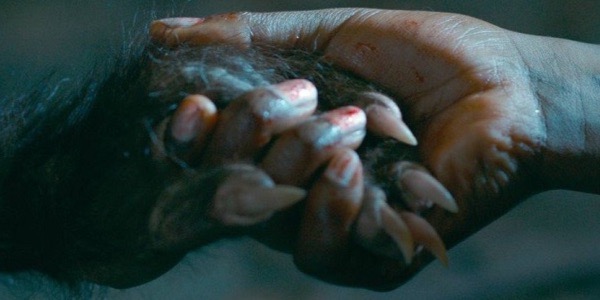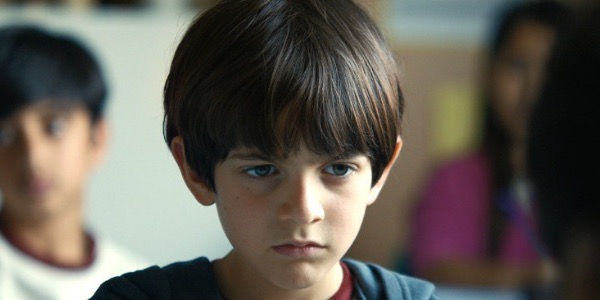GOOD MANNERS: A Fractured Fairytale

Spent most of my life watching and discussing movies. Writing…
Often, one might come across a film so bizarre it leaves the viewer at a loss when deciding on what they came away with. The Brazilian film Good Manners fits this mold in so many ways. Directed by Marco Dutra and Juliana Rojas, the film attempts to weave a tapestry heavily burdened by its need to pack two stories into one while ending up only somewhat sticking the landing.

Clara, an introverted nurse in desperate need of work, takes a job as a live-in nanny for a young, affluent, soon-to-be single mother named Ana. What starts as a tense employer/employee relationship soon evolves into a rocky romance marred by tragedy. Throughout the film, Ana is revealed to have been cut off from her rich family and ex-fiancée after getting pregnant during a one-night stand. Now, feigning opulence, Ana is left alone to raise her child with Clara as her only confidant and eventual lover. Pretty straight forward, right? Until the second act, that is.
Love Knows No Genre
The aforementioned tragedy comes at the midway point of the film and changes the tone, style, and even genre altogether. During the last term of the pregnancy, Ana begins to develop strange behaviors in the form of insatiable cravings for meat and sleepwalking through the city to eat a stray cat. Yes, you read that correctly and no, this is not the tragic moment, but rather the start of a bizarre, head-scratcher of a second act.
Minor spoilers ahead, but nothing the trailer doesn’t reveal in some way.

Clara does her best to rationalize Ana’s behavior until she comes home to find the young mother dead and an infant werewolf crying on the floor nearby. Thus begins film number two, where Clara takes it upon herself to raise the Lycan child, hiding his lunar cycled malady from the world for ten years while still allowing the child to have a somewhat normal childhood. What follows is a coming-of-age story where the sweet-natured boy, Joel, learns the truth about his past with disastrous results.
It is hard to recall a one-eighty this severe since Robert Rodriguez’s From Dusk Till Dawn.
I Was A Tweenage Werewolf
Good Manners, on the surface, is a middling-paced romantic drama with some horror elements, doing its best to stir up feelings of love, loss, and finding one’s self. Unfortunately, the route the storytellers choose drags out the runtime longer than needed. Stretching past two hours, there are several scenes in dire need of a trim or rewrite if only to keep the momentum going. For instance, the beginning of the film doesn’t really amount to much until about the half-hour mark, never teasing the interesting bits before then, making it difficult to want to soldier on through the everyday humdrum of the two leads getting to know one another. It isn’t until the teases at what the father of Joel is that the story goes beyond its melodramatic romance, which on its own could have been far more impactful if it were only alluded to earlier.

The pre-teen Joel adds a nice dichotomy to the plot, changing Clara from a lonely introvert into an outgoing, fun mom who finds happiness with her adopted son. Whereas Joel himself is a charming child actor who brightens up every scene he is in with well-written character development. All of the kids portrayed in this are precocious without trying to act like anything other than their age. Needless to say, the second half has a lot more to offer in terms of plot than the initial setup, which is a shame because the love between Clara and Ana could have been further explored rather than unevenly rushed. The tone at the midway point is brighter in feel and visuals despite the few glaring plotholes which are never quite addressed. One such gaff is why Clara would move back to her small town with a new baby after leaving Ana dead in her apartment? One might think the cops would have a few questions for Clara but this issue is puzzlingly never addressed by anyone in the film.
Nothing Special About The Effects
With a film touting a werewolf kid, special effects need to be discussed. Using a mixture of practical and digital effects, the results aren’t as eye-catching as intended. Whenever Joel is a full-blown werewolf he looks like a cartoon dog with human expressions leaving a stark contrast to the real world interacting around the character. He doesn’t look terrible, per se, rather out of place compared to the transformation scenes where Joel, played by the ironically named Miguel Lobo, is adorned with patches of fur, sharp claws, and yellowed contact lenses giving him as realistic a look like a child going through a lycanthropic change could. If they had stuck to the practical make-up, the concept would have packed a less distracting punch.
Conclusion
All and all, Good Manners is a flawed narrative with a good heart and powerful message at its core. The characters and plot are captivating when allowed to be, though the soggy bits weigh down an otherwise interesting concept. This film is a recommendation for anyone tolerable of a very slow burn with an element of the supernatural. Others may find the meandering first half a bit dull at parts and the tonal shift abrupt, to say the least. Good, not great, though the effort put forth by the creatives shows.
What film can you recall throwing you for a loop halfway through only to become a completely different experience? The Film Inquiry Community would love to hear about it. Leave a comment and get the conversation started.
Good Manners is now streaming.
Watch Good Manners
Does content like this matter to you?
Become a Member and support film journalism. Unlock access to all of Film Inquiry`s great articles. Join a community of like-minded readers who are passionate about cinema - get access to our private members Network, give back to independent filmmakers, and more.
Spent most of my life watching and discussing movies. Writing is a way to keeping the conversation going with the rest of the world.













